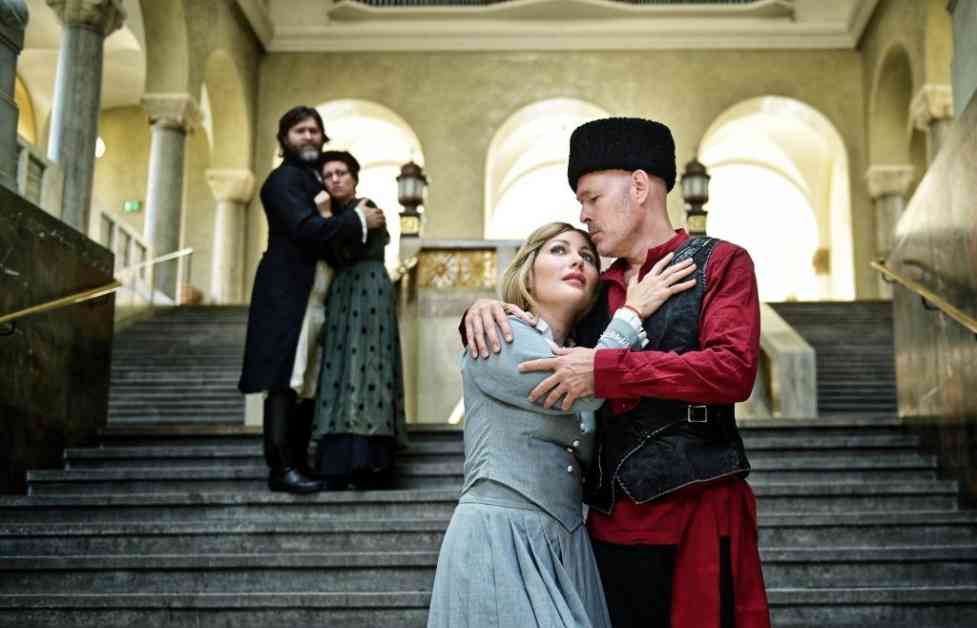Revolutionizing Classical Music with Opera Incognita
Opera Incognita, a renowned Munich ensemble, is at the forefront of revolutionizing the world of classical music by bringing it to unconventional venues. Their latest production, Tschaikowskis’s „Mazeppa,“ directed by the talented Andreas Wiedermann, is taking place in the halls of the Munich University. This unique setting adds a new dimension to the opera, creating an immersive experience for the audience.
Wiedermann, a visionary in the world of opera, explains that the decision to stage „Mazeppa“ at the university was a deliberate choice to break away from the traditional opera house setting. He believes that by bringing opera to unexpected locations, it allows for a more intimate and engaging experience for the audience. The university’s halls provide a historic backdrop that enhances the storytelling of the opera, creating a connection between the performers and the viewers.
Exploring the Themes of „Mazeppa“
„Mazeppa“ is a powerful opera that delves into themes of love, betrayal, and political intrigue. Set in 17th-century Ukraine, the opera follows the story of Ivan Mazeppa, a historical figure who becomes entangled in a web of love and deceit. Wiedermann’s interpretation of the opera brings out the complex emotions of the characters, highlighting the turmoil and passion that drives the story forward.
The music of Tschaikowskis’s „Mazeppa“ is equally captivating, with its sweeping melodies and dramatic crescendos. Wiedermann’s direction enhances the emotional impact of the music, drawing the audience into the world of the opera. Through his innovative staging and use of the university’s spaces, he creates a dynamic and immersive experience that transports the viewers to another time and place.
The Impact of Unconventional Opera Settings
Opera Incognita’s decision to stage „Mazeppa“ at the Munich University is part of a growing trend in the opera world to break away from tradition and explore new ways of presenting classical music. By bringing opera to unexpected venues, such as universities, warehouses, or even outdoor spaces, directors like Wiedermann are able to reach a wider audience and make the art form more accessible.
The impact of staging opera in unconventional settings goes beyond just the physical location. It challenges the audience’s expectations and preconceived notions of what opera should be, opening up new possibilities for storytelling and interpretation. For Wiedermann, this approach allows him to push the boundaries of traditional opera and create a more dynamic and engaging experience for both performers and viewers.
In conclusion, Andreas Wiedermann’s production of Tschaikowskis’s „Mazeppa“ at the Munich University is a testament to the power of opera to transcend boundaries and captivate audiences in unexpected ways. By bringing classical music to unconventional venues, Opera Incognita is paving the way for a new era of opera that is immersive, innovative, and inclusive.















